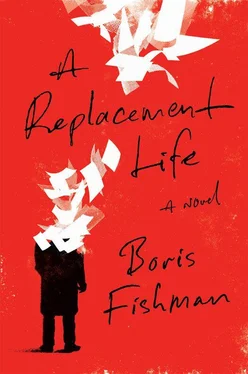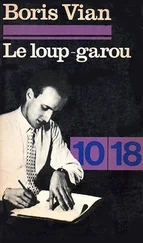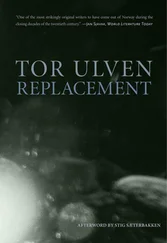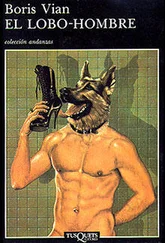“It’s called Century . You know this.”
“Sancher,” he said. “Hold on, let me write it down.”
“No— Century . You’re not trying.”
“I am eighty years old, and my wife died yesterday. Do you understand that, or you’re already on with your life? S like a Russian S?”
“No. Yes. C. Like a Russian S.”
“Then?”
“E. Same in both. Then a backward Ee — N. Then a T — same in both. Then that horseshoe.”
“What horseshoe?”
“Just draw a horseshoe.”
“Open side down?”
“No, up.”
“I had horses. One was called Beetle, and one was called Boy.”
“Next is an R. An English R. Like our ya but backward.”
“Ya backward…” Grandfather repeated dejectedly. “I need Berta.”
“She speaks even less English than you,” Slava said. “Come on, you can do it. Ya backward. And then — this is the last one — a Y. Same in both.”
On the other end of the line, Grandfather studied the paper. “Sancher,” he read.
In the preceding years, Slava had tried to propose to his superiors at Century stories of the kind he saw in the magazine every week. He prayed and broke bread with five young evangelical men from Ohio who had come to New York to test their faith in the most depraved place they could think of. He jumped on a trampoline with a runaway to the Big Apple Circus who was a Ph.D. in semiotics and was writing a semiotics of the tightrope. One Saturday, Slava clawed ninety-one dollars from the cold, dead fingers of his bank account and took a Peter Pan bus to the Massachusetts town where the fourth synagogue built in America was going to become the first Staples in town. A town baker who had stayed kosher even though too few Jews remained to notice — he was wise to persist; soon non-Jews would be buying more kosher products than Jews, another story Slava would try to give Century —had appeared at the grand opening to protest. (“Destroying a heritage?” his placard said in wandering Sharpie. “Come to Staples! That Was Easy. ™”) The baker gave Slava another lead: an underground international bidding war for Hitler’s personal map of Europe by a Belgian industrialist with neo-Nazi proclivities and the British Orthodox Jew (a third cousin of the baker) who wished to procure it first so he could destroy it.
None of it had worked, Slava did not understand why. Had his submissions been received? Slava inquired with the IT department, but his e-mail appeared to be working; Mr. Grayson was managing to get through with brainless new assignments with no difficulty. Archibald Dyson (the senior editor) probably never opened Slava’s e-mails in the first place. Slava could write Arch that he had humped his wife outside a liquor mart on Tuesday afternoon and Arch would never know. Arch thought he was spam.
An image of Slava’s grandfather spun out of the screen of Slava’s desktop one hopeless afternoon: I have beaten a man eyeless for saying “kike” out loud. I put enough goys in my pocket to get your mother into Belarus State. We left only with what we could carry and now your parents have a Nissan Altima and a Ford Taurus. So, lift your ass from your ergonomic work chair and put this Dyson’s nose directly into whatever it is that you do, with a little two-finger pinch at the base of the neck if that helps. We have seen your kind, Mr. Archibald, and we have seen worse, so why don’t you give this a read.
Slava did it, minus the pinch of the neck and plus a bout of diarrhea nervosa, but this did not have the result intended by Grandfather-genie.
Slava pressed forward. On a weekend, feeling war-roomish, he bought a wipe board and wrote out on its left side the previous issue’s table of contents. To the right of each entry, he assigned the story a category:
Profile of eccentric personage
Interview with famous person
Story of a stunt action
International report
Highlight of social issue
Memoir of picayune childhood experience
Famous people and international reports he could do nothing about — he didn’t know any famous people, and he didn’t have the money to go to the nearest war. But the rest: They had an eccentric personage, he had an eccentric personage (the baker). They had a stunt action, he had a stunt action (the evangelicals). And while the Jewish evacuation of Rhode Island was perhaps not as pressing an issue as the epidemic of underage mothers, it was along the same spectrum, that could not be denied. Was Slava required to produce a memoir of Little League times or learning to bake with his mother? Slava cursed his mother for never teaching him how to bake, and the full Gelman clan for keeping him busy translating credit-card offers until it was too late to join Little League.
No, it couldn’t be the subjects. It had to be the style. Slava returned to the issue and reread every article. Then he went to a bin where he kept old issues and reread the last six issues, this time latitudinally: the opening story across all six; the next story across all six; the closing story. He experienced the Egyptologist’s tremor upon stumbling on Nefertiti’s lunch bowl: He had decoded the pattern. The wipe board full, Slava started taping note cards on the refrigerator, the fridge burping in acknowledgment of this first garlanding since its purchase.
Article A. Opening part: The Scene. Sentence One: Specific Date. “On January 27, 2005, Avery Coulter went outside to clear his driveway of the heavy snowfall that had blanketed Rochester, New York, the previous night.”
The prose made the obvious elegant — you could not very well shovel snow anywhere but outside, could you, but one didn’t mind with such a sinuous sentence — and though it stayed well shy of the fences, the tempered, diffident tone was like a mother’s hand on the cheek. Absent a mother, a Beau Reasons.
Onward. We watch Avery start to shovel the driveway; his neighbor owns a Range Rover; the township recently cleared a nearby creek’s overflow tubes of debris (the randomness of the details only adds to their aristocratic, mysterious elegance); booltykh —Avery feels a strain in his lower back. He knows something’s wrong. Section break.
Section Two: The Issue. “Tens of thousands of Americans strain their backs shoveling snow every year, leading to millions of lost workdays and tens of millions of dollars in hospital bills. Many Americans have snowblowers, but quality machines are pricey indulgences, at five hundred dollars and more. It was while Coulter, an entrepreneur, was laid up after his unsuccessful driveway clearing — according to Forbes , Coulter has enough money for a million snowblowers, but that morning he wanted some exercise — that he thought: There has got to be a better way.”
Section 2A: The Quote. “‘I hadn’t shoveled a driveway since I was seventeen,’ Coulter said on a recent afternoon. ‘So I guess it served me right. But it wiped me out for a week. I thought about people who don’t have the luxury of that. And that’s when I thought: SnowGlow.’
“Coulter, who specializes in domestic use of nuclear energy, imagined a negligibly radioactive field that could melt the snow in your yard [note the smooth intimacy! not a yard but your yard] at the rate of a square foot a second. Don a protective suit, warn the neighbors, flip a switch, and voilà: snow into snowmelt.”
And we’re off. A biographical section on Coulter, quotes from a current (ingratiating) and a former (passive-aggressive) associate, a skeptical comment about runoff from someone in Energy, a zoom-out about the state of nuclear, and then the semi-autistic peter-out of the end: “The winter has been especially persistent in Rochester this year. On a recent afternoon, Coulter was in his driveway, pulverizing a snowfall with SnowGlow. By his count, it was number sixteen of the season. He had been spending more time at home than ever. In his hazmat suit, he looked a little like an extra from Red Dawn . It was nearly dark when his wife called him to dinner. ‘In a minute!’ he yelled. He sounded like a kid reluctant to let go of a toy.”
Читать дальше











